FAQ’s
Am I eligible? Who competes in Paralympic sport?
There are seven eligible impairments that the International Paralympic Committee (IPC) recognises within Para sport which fall within physical, vision or intellectual impairment categories.
Some Para sports offer alternative programs or competitions for individuals with disabilities who sit outside of the Para sport system such as Special Olympics, Virtus Games or Invictus Games.
What are the eligible impairments in Para sport?
The seven eligible impairments for Para sport are:
Physical Impairment – must be consistent with an Underlying Health Condition that (i) originates from the central or peripheral nervous system; or (ii) is musculoskeletal.
- Impaired Muscle Power
- Impaired Passive Range of Movement
- Limb Deficiency and/ or Limb Length Difference
- Short Stature
- Coordination Impairments
Vision Impairment – an Underlying Health Condition affecting the structure or function of the eye, optic nerve, optic chiasm, post chiasma visual pathways or visual cortex brain resulting in reduced or no visual function even when using the best possible refractive or optical correct
Intellectual Impairment – an Underlying Health Condition causing restriction in general mental functions required to understand and constructively integrate the various mental functions including all cognitive functions and their development over the life span.
It is important to note that not all impairments are eligible in each Para sport.
When is classification required?
An athlete can participate in Para sport socially without needing a classification, however for competitive Para sport for all ages, classification is a requirement.
Once an athlete is ready and of the right age to start competing in their Para sport, there are three levels of classification available:
- Provisional
- National
- International
Each Para sport has its own classification requirements and procedures so please contact your National Sports Organisation for more information.
Who decides which impairments are included in each Para sport?
The International Federation for each Para sport decides on which of the recognised impairment types are eligible for their Para sport. Some Para sports provide opportunities within all seven impairment types e.g. Swimming, Athletics; whilst other Para sports only offer one impairment type e.g. Goalball, Judo. Some athletes will be able to compete in one Para sport but not in another.
The decision about which impairments and events are offered at the Paralympic Games is managed by the International Paralympic Committee (IPC) and the International Federations. This is decided many years in advance of each Paralympic Games. Further information about Paralympic Games can be found at https://www.paralympic.org/
Many Para sports offer alternative programs or competitions for people with disabilities who sit outside of the Para sport classification system. For further information, please reach out to your National Sports Organisation.What is the Classification Code?
The IPC Classification Code is the fundamental document upon which classification in the Paralympic Movement is based and it is designed to support the Paralympic Movement in developing effective classification systems. The Code also outlines the classification responsibilities of athletes, organisations and classifiers involved in Para sport.
Each of the International Federations i.e. World Triathlon and World Para Swimming, must have a compliant classification system to meet the requirements of the IPC Classification Code.
Do Classification rules change?
Yes. Classification requirements can change from time to time as Para sport evolves. Some changes are guided by research, feedback from Para sport members and athletes, and other changes may reflect changes to the IPC Classification Code. If the classification rules change in a particular Para sport, affected athletes may need to be reclassified.
How is an athlete’s medical condition/diagnosis verified?
Athletes must supply medical evidence (diagnostic information) from a medical doctor or other health professional which confirms an underlying health condition(s). Medical evidence will support a completed Medical Diagnostic Form which is sent to the National Sports Organisation for the Classifier(s) to review. This is the first stage of the classification process and takes place prior to the Eligible Impairment Assessment by a classification panel.
The classification panel must be able to see evidence of a diagnosed medical condition and that the diagnosis leads to at least one of the eligible impairment types for that Para sport. The classification panel cannot take into consideration impairments that are due to difficulties with training.
Please note that required medical evidence can vary between Para sport and throughout an athletes’ progression in Para sport. Please contact your National Sports Organisation for more information.
I have multiple impairments (either multiple eligible or non-eligible impairments), can these be considered all together?
Some athletes may have more than one impairment (i.e. a vision and physical impairment), or a combination of eligible and non-eligible impairments.
If it is deemed that an athlete meets the Minimum Impairment Criteria for more than one impairment in their chosen Para sport, the athlete will receive two Sport Classes due to the different ways impairments affect each Para sport.For example, an athlete who has both a vision and physical impairment in Para athletics may be issued with a T37 Sport Class for their physical impairment and a T13 Sport Class for their vision impairment The athlete will need to select which one of these Sport Classes they wish to compete in if this is permitted by the Para sport rules.
Who should I contact to get classified?
Athletes need to reach out to their National Sports Organisation for specific classification information. Contact with an National Sports Organisation should be made as early as possible to allow sufficient time for documentation to be reviewed.
How are athletes grouped together in classes?
Athletes are grouped together based on their level of impairment and its impact on their Para sport. As the skills required to compete in each Para sport varies, each Para sport has a different classification system. As athletes have impairments that range in severity, most Para sports have a range of Sport Classes and there will always be a range of athletes in every class.
In principle, athletes whose impairments have a limited impact on their Para sport will compete together, and so will athletes whose impairments impact their Para sport to a larger amount. This allows athletes with different severities different opportunities to compete.Para athletes have many different impairment types, and it is not feasible to have an unlimited number of Sport Classes. As a result, there will always be a range of impairments and abilities in every Sport Class.
Although an athlete might perform or look differently to other athletes in the same Sport Class, this doesn’t mean that their classification is incorrect, or the athlete is cheating. This is more likely to be explained by the design of the classification system. Each National Sports Organisation will be able to outline the rules and information for each Para sport.
If an athlete trains hard will their Sport Class change?
Athletes who have impairments such as limb deficiency/amputation, short stature or leg length difference will not have any change in their Sport Class due to training as these impairments stay the same regardless of how hard or how little an athlete trains.
Classification is more difficult in athletes who are physically not yet mature, are less experienced in their Para sport, who are trialling new medical treatments or have only recently acquired their impairment or disability. This is because maturation, skill acquisition and natural recovery may influence how their impairments present. These athletes may change over time, which may affect their eligibility, but it is not necessarily because of training.
The classification of athletes who are physically mature and highly experienced in their Para sport is unlikely to change over time.What happens if an athlete has medical treatment or their condition changes after they are classified?
If an athlete’s condition changes after a Sport Class has been issued (i.e. their condition deteriorates or having treatment improves their functionality, they must report this to their National Sports Organisation as this might affect the Sport Class they have been given. The National Sports Organisation will decide if the athlete needs to be classified again.
Athletes who don’t declare changes to their condition may be in breach of the rules of their Para sport, as this may be considered a form of cheating or intentional misrepresentation.How often are athletes classified?
When an athlete is first classified in New Zealand they are allocated a Sport Class Status which outlines if/when they may be required to be reclassified.
Athletes with Review (R) and Fixed Review Date (FRD) will need to be re-valuated in the future either at the next competition or after the review date.
Athletes with a Confirmed (C) Sport Class Status will not need to be re-evaluated unless the classification rules for their Para sport change.
Most athletes will have to be classified more than once throughout their sporting life.
If an athlete progresses to international competition, they will need to be re-evaluated as part of the Para sport International Classification requirements to complete internationally.
Do I need to provide evidence of my classification to enter a Para sport competition?
Each Para sport will hold individual classification details on file as part of a classification master list database. Competition organisers can confirm an athlete’s classification by referring to the master list for each Para sport.
What opportunities exist for athletes with intellectual impairment in Para sport?
Currently, athletes with intellectual disability can compete in Para athletics, Para swimming and Para table tennis at the Paralympic Games. There are a number of other opportunities for athletes with an intellectual impairment to compete in Para sports outside of the Paralympic Games both at an national and international level.
The Virtus Global Games are held every four years and offer a large program of events and is a large scale international event.How is my classification information protected by my Para sport?
International Federations, National Sports Organisations and Classifiers must, by law, protect certain personal and medical information about athletes. Athletes should expect that their information is handled privately and safely. Athletes have a right to access personal classification information and can do so by contacting their National Sports Organisation.
As a Para coach can I obtain a copy of my athletes’ classification paperwork?
No. Athlete classification information is protected by data privacy law and can only be provided to the athlete (or their parent/ guardian). Athlete consent is gained and their data rights explained and agreed to via the Classification Consent Form that is signed prior to the classification evaluation session being conducted.
What Para sport opportunities are available for II athletes?
SPORT
PARALYMPIC GAMES
VIRTUS
SPECIAL OLYMPICS
Para alpine skiing
Y
Y
Para athletics
Y
Y
Y
Basketball
Y
Y
Bocce
Y
Bowls (Outdoor & Indoor)
Y
Cricket
Y
Para cycling
Y
Para equestrian
Y
Y
Football/ Futsal
Y
Y
Golf
Y
Y
Para hockey
Y
Para judo
Y
Karate
Y
Para powerlifting
Y
Para rowing
Y
Sailing
Y
Para snowboard
Y
Para swimming
Y
Y
Y
Para table tennis
Y
Y
Y
Para taekwondo
Y
Tennis
Y
I am concerned about the way I have been treated during classification.
Safety and integrity are taken very seriously in Para sport and no person should experience any bullying, discrimination, disrespect, harassment or abuse during classification. If you have concerns, please ensure these are raised with the classifier, the National Sports Organisation or alternatively Paralympics New Zealand.
How do I become a Classifier?
Classifiers are sports officials with a medical or sport science background who have completed the required training and certification as determined by the International Federation and National Sports Organisation of their nominated Para sport. If you’re interested in learning more about becoming involved, please contact your relevant National Sports Organisation or Paralympics New Zealand.
What is the background/training of Classifiers or National Eligibility Officers?
Classifiers or National Eligibility Officers are trained officials who conduct classification assessments on behalf of an International Federation and/or National Sports Organisation.
Classifiers and National Eligibility Officers) are medical experts (i.e. doctors, vision specialists or physiotherapists), or are sports technical experts (i.e. sport scientists’ or a coach).What is Paralympics New Zealand’s role in Classification?
Paralympics New Zealand oversees the implementation of the IPC Classification Code and Rules in New Zealand Para sport. Paralympics New Zealand assists National Sports Organisations to follow the rules and provides support to improve their national classification programmes including training of classifiers.


























